August is a tough month. By the time it arrives, I’ve already had a full summer, starting with early turkey-hunting trout trips — or trout-fishing turkey trips — in Minnesota’s Driftless and northern Michigan. After that are the the big bug hatches, hundreds of winding river valley miles, too many late nights and bug bites, and a comprehensive collection of the Upper Great Lakes’ mayfly and caddis species pasted to the bumper of my truck. Then musky season starts, with its early mornings, sore arms, two-stroke smoke, and well-seasoned sea legs.
By the end of July I can feel the engines that drive my inner outdoorsman idling low, sputtering, starving for gas. Outings begin to feel more like obligations. Gathering gear is a chore, things get forgotten, my tying vise sits neglected, and the garage descends into chaos of rods and gear.
The water’s too warm for safe musky releases, I tell myself. Too many jetskis anyway. Trout fishing? The Driftless horseflies and bankside vegetation are too thick.
I know these are weak excuses. When the water’s too warm for muskies, it’s perfect for smallies. I love smallies. One can easily avoid jetskis by driving farther or getting up earlier. Bugs and tall grass? Come on.
By August, I have no fire left. I am burned out, possibly even in Mayo’s clinical sense: physical or emotional exhaustion that also involves a sense of reduced accomplishment and loss of personal identity. That familiar glowing anticipation that motivates the early-morning wakeup, that’s already planning the next trip while driving home from the last, that inhibits sleep the night before, is simply gone. I feel flat.
And so does this steaming month. It lingers and drags. Hot nights of restless sleep. Morning downpours and evening heat lightning. Raccoons on the roof again. The grass needs cutting. Yellowjacket nest in the garage eaves. At least the grill’s hot and the beer is cold. Plenty of it, this month. Too much.
It’s troubling. Hunting and fishing aren’t hobbies or diversions, but are part of who I am. The degree to which this is true is revealed in August. When the drive to pursue evaporates, I am adrift. Hollow. I feel guilty for precious time lost as the number of days since I’ve last cast a rod or laced a boot clicks higher and higher. Who is this person, who has no interest in the woods, in the water? Do I like this person? I’m bored by him, I know that.
But there is a cure. It is one hundred percent effective, almost instant, and always a shock. Sometime in early September a morning dawns with a cool breeze, one that blows the maple leaves backwards, their silvery undersides almost glittering. The air is charged with some kind of intangible power that whispers fall. I can feel it find some tiny glowing ember deep beneath my breastbone, and stoke it, gently at first. It is anticipation, longing, nostalgia, and no small amount of relief.
Images begin to flash into my mind: golden oak leaves falling onto a musky river, swirling on a black foam-speckled eddy; oar handles in woolen gloves and a favorite fleece hoody tucked into my waders; underfoot aspen leaves softened by melted frost, silent bootsteps along the field edge, double gun comfortably balanced in my right hand.
I am not alone in my response to this small shift in weather. Other folks feel it and lament the end of summer, the end of beach days, patio happy hours, tank tops and flip flops. The rest of the world feels it, too. Soon the first trees will begin to ungreen, with some maples flaring off early in a burst of elemental red and orange. Canada geese are gathering on the larger lakes, and small groups of ducks are cruising high overhead in grey skies, bound for somewhere far off, not just the next lake over.
This week I’ve been reorganizing the garage, sorting gear into piles, packing away rods and fly boxes, unpacking others. There’s no time to lose. Rifles and bows must be zeroed, musky boxes must be organized, trailer bearings must be repacked.
These touchstones will all be at least grazed by fingers as October and November approach. For these months are set aside for big western skies, cool creek valleys, rub-line ridgetops, and ice-rimmed musky rivers. And for the people, some who I only see in the fall, for excited whispers afield, high-fives with a fish in the net, and easy laughter before a long evening campfire.
Will I burn out again? Might January be as bleak as August? I can’t worry about that now. No time.

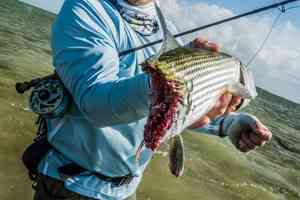
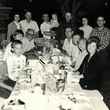


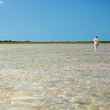
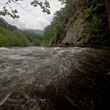
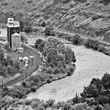



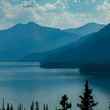
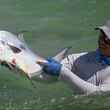
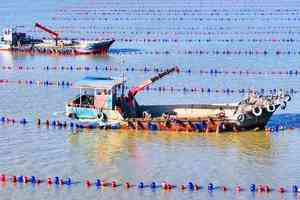
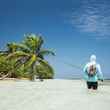

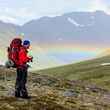
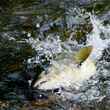



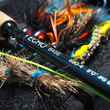



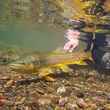
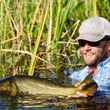
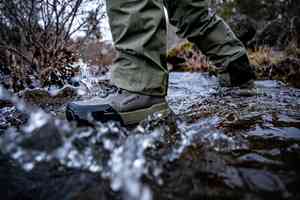
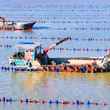
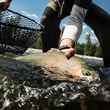
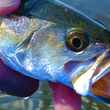
Comments